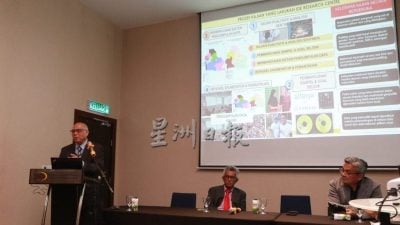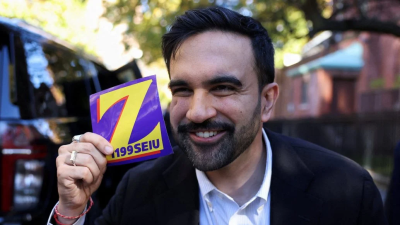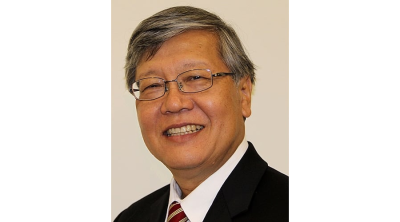
The case of a PhD holder with top academic credentials—including degrees from Peking University, Tsinghua University, and Oxford University—ended up working as a food delivery rider after struggling to find a job went viral on social media.
During the college entrance exam season in China, the Phd holder, who once worked as a researcher in university, shared his experience in a video encouraging students to stay calm.
However, his comments—such as “everyone’s job in future won’t be that different” and “even the best people can’t ignore shifts in the broader environment”—sparked widespread debate.
This researcher, named Ding Yuanzhao, is a true academic overachiever.
Before losing his job, he was a post-doctoral fellow at the National University of Singapore. He had expected to spend his life in academia.
But last year, when his research contract was not renewed, he had to look for other work.
He first worked as a delivery rider in Singapore, and after returning to China this year, he continued to earn a living this way. Currently, he works 12 hours a day, earning between RM150 to RM300 daily.
Ding’s journey from post-doctoral researcher to delivery rider is a dramatic shift.
His experience does qualify him to tell students from firsthand experience that “grades aren’t everything.”
Whether one does well or poorly in exams, there’s always another perspective, and even delivery work can be a means of self-reliance.
However, we must acknowledge that it is not normal for someone with high academic qualifications to be doing food delivery.
The phenomenon of “highly educated individuals working as delivery riders” has sparked heated discussion among Chinese communities globally.
Ding is merely the tip of the iceberg.
This is not just happening in China—many university graduates in Malaysia also choose to work for food delivery platforms or as ride-hailing drivers.
The difference is that Ding’s unemployment was involuntary, whereas many Malaysian youths willingly choose delivery work over a conventional 9-to-5 job.
This trend reflects a mismatch between the education system and job market.
In Malaysia, the higher education enrolment has grown rapidly over the past 20 years, with university participation rates rising from 28 percent in 2000 to around 53 percent in 2025.
Every year, about 300,000 students graduate, resulting in a surplus of highly educated labor. Yet, due to lagging industrial transformation and a slow increase in innovative, high-value, and professional jobs, the job market cannot absorb large number of graduates—creating a structural oversupply of degrees.
Since the Covid-19 pandemic, platform-based economies have surged, increasing the number of delivery riders and creating a new form of global employment.
Delivery work can sometimes offer short-term income that exceeds that of entry-level white-collar jobs, with more flexible hours and faster cash flow—appealing especially to financially constrained youth.
In Kuala Lumpur, full-time delivery riders reportedly earn between RM3,000 to RM4,000 monthly—more than many fresh university graduates.
This mismatch between academic credentials and market demand, coupled with an oversupply of graduates and short-term mindset among youth, have led to this abnormal phenomenon.
What’s wrong with highly educated people doing food delivery?
Public opinion is divided.
One camp argues that “education is useless”: Why pursue higher education if delivery jobs don’t require a degree?
The other insists that all honest work is respectable, including delivery work.
When a society needs PhD holders to work as food delivery riders—yet fails to create enough positions that actually require their expertise—it signals a failure of the education system.
From a practical standpoint, there is nothing inherently wrong with degree holders doing delivery work—every job deserves respect.
But if this becomes a long-term societal norm, it signals deeper issues in the industrial economy and education system.
First, educational capital is failing to translate into productivity.
Education should enhance human capital. If a degree cannot translate into salary or professional output, it erodes public confidence in higher education.
This is one reason why nearly 50 percent of Malaysian SPM (Form 5) graduates choose not to pursue further studies.
Second, social mobility becomes restricted. While delivery work may offer decent short-term income, it lacks long-term career development.
There’s little opportunity to build technical, managerial, or professional skills, and few prospects for career advancement—risking class stagnation.
Third, it creates a psychological gap and social frustration.
For many underprivileged students, education is their only hope to change their fate. If, after investing time and money, their lives don’t improve, it may lead to a sense of powerlessness and dissatisfaction with society.
Therefore, the issue is not whether it’s “shameful” for highly educated individuals to work as delivery riders, but why society can’t offer more roles where they can apply their expertise.
From an economic efficiency perspective, when a society invests massive public and family resources into educating university students but fails to create corresponding professional or knowledge-based jobs, it results in talent mismatches and wasted resources.
From an educational standpoint, the value of education goes beyond employment. It includes cultivating critical thinking and cultural literacy.
So, even if someone ends up doing delivery work, if they can apply their learning to daily life, their education hasn’t been wasted.
The problem arises when we see systemic “degree devaluation”—a sign that education expansion and industrial transformation are out of balance.
The public university quota and Malaysian Chinese students
Let us briefly touch on the issue of unfair university quotas faced by Malaysian Chinese students which resurfaces year after year.
Each year, when the STPM results are released, countless outstanding Chinese students lament: “Even with straight A’s, I still can’t get into medicine, dentistry, pharmacy, or law.”
The university admissions quota system originated from the New Economic Policy (NEP) of the 1970s, which aimed to elevate the socioeconomic status of the Malay population and reduce inter-ethnic disparities.
Under this system, public universities and matriculation colleges allocate at least 60 percent of seats to Bumiputeras, leaving non-Bumiputeras to compete for the remaining spots.
Is the quota system fair? There are two definitions of fairness. First, fairness of outcome: ensuring that disadvantaged groups achieve a certain status to maintain ethnic balance. Second, fairness of opportunity: ensuring that everyone, regardless of ethnicity, competes based on merit.
The quota system reinforces outcome-based fairness (prioritizing Bumiputera) but sacrifices opportunity-based fairness (affecting Chinese and Indian Malaysians).
This is especially problematic when middle-class Bumiputera still benefit from the quotas while low-income Chinese or Indian students are excluded—calling the legitimacy of the system into question.
There is nothing wrong or shameful about being a “highly educated delivery rider.”
Regardless of education level, all labor deserves respect. However, when a society needs PhD holders to work as food delivery riders—yet fails to create enough positions that actually require their expertise—it signals a failure of the education system.
Likewise, when a country must rely on quotas to maintain ethnic outcome fairness but cannot ensure opportunity fairness, it risks losing the trust and hope of the younger generation.
Soon, there may be fewer and fewer students willing to attend university, and the quota system could collapse on its own.
Education must improve lives, industries must retain talent, and fairness must not become a shield for privilege.
Otherwise, no matter how much GDP grows, or how many delivery orders are fulfilled, people will not truly feel the “progress.”
(Chan Pong Long once served a Taiwan professional organization for 20 years. He specializes in analyzing domestic and international political and economic affairs, strategic planning and corporate management. He has written more than 10 books)
ADVERTISEMENT
ADVERTISEMENT








































